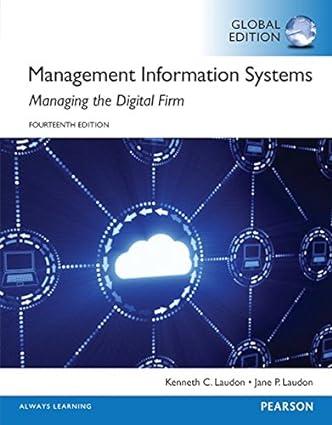15-12 What management problems typical of global systems was Unilever experiencing? What management, organization, and technology factors
Question:
15-12 What management problems typical of global systems was Unilever experiencing? What management, organization, and technology factors were responsible for those problems? Palm oil was the driving force behind the 1929 merger that created what is today the third largest consumer goods company in the world behind Proctor Gamble and Nestlé. What may have seemed an odd marriage between British soap maker, Lever Brothers, and Dutch margarine producer, Margarine Unie, provided new company, Unilever, unprecedented purchasing power for the primary raw material of both products.
Today Unilever focuses on 14 brands, each netting more than €1 billion annually including laundry soap Surf (Omo), soap, shower gel, shampoo and conditioner brands Lux, Dove, and Sunsilk, and deodorant and personal care brands Axe (Lynx) and Rexona, also sold as Sure, Degree, Shield, and Rexena. On the edible side, top sellers include ice cream brands Magnum and Heartbrand, margarine brands Becel
(Flora/Promise/Fruit d’Or) and Rama, mayonnaise brands Hellmann’s and Best Foods, and soup, seasonings, and tea brands Lipton and Knorr. All told, the Anglo-Dutch multinational boasts over 400 brands, sells its products in over 190 countries, and employs more than 175, 000 people worldwide.
Step by Step Answer:

Management Information Systems Managing The Digital Firm
ISBN: 9781292094007
14th Edition
Authors: Kenneth C. Laudon






